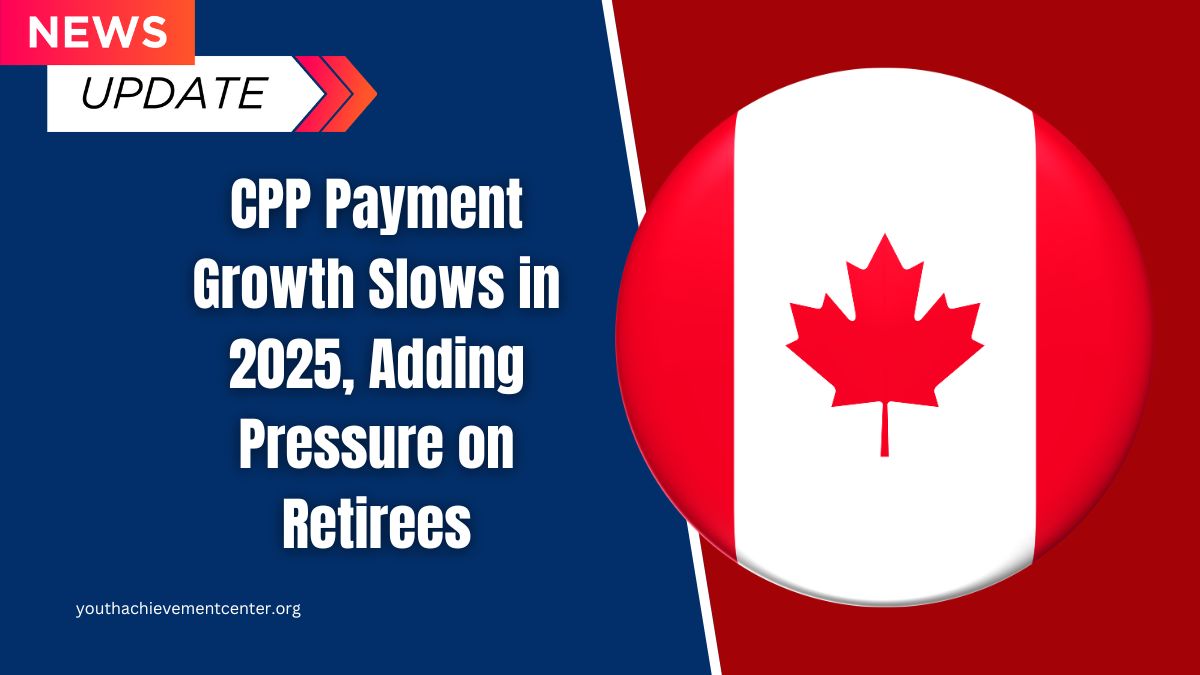The Canada Pension Plan (CPP) increase for 2025 is causing concern among retirees who are already grappling with elevated living costs. The adjustment, which raised payments by just 2.6%, marks a significant decline from the 4.4% hike in 2024. With inflation still impacting essential items like groceries and gas, many seniors feel the increase falls short of their needs.
This year’s increase is tied to cooling inflation but doesn’t fully address the rising costs retirees continue to face. Below, we dive into the details of the 2025 CPP adjustments, explore the financial challenges retirees are encountering, and provide insights into managing expenses during these times.
2025 CPP Payment Adjustments
The maximum monthly CPP payment for individuals starting their pension at age 65 increased to $1,433, an increase of $68.40 from 2024. While the increase reflects the slowing inflation rate, it does not align with the sharp rise in costs for key essentials over the past few years.
How CPP Adjustments Are Calculated
CPP adjustments are based on the Consumer Price Index (CPI), which measures the average price change of goods and services in Canada. For 2025, the adjustment was calculated using CPI data from November 2023 to October 2024.
However, critics argue that this calculation method doesn’t account for the unique spending patterns of seniors, who face disproportionate increases in expenses like healthcare, housing, and food.
The Impact of Slower CPP Increases
Rising Costs for Essentials
While inflation overall has cooled, prices remain significantly higher than pre-pandemic levels. For example:
- Grocery Prices: Up by 19.6% compared to 2021.
- Gas Prices: Continually fluctuating but generally higher than historical averages.
- Healthcare Costs: Increasing steadily, especially for medications and specialized care services.
Dianne More, a 74-year-old retired teacher from Markham, Ontario, expressed her frustrations, saying, “We’re struggling because we’re on a fixed income. There isn’t money for the extras.”
Financial Challenges for Retirees
Retirees are increasingly dipping into their savings to cover day-to-day expenses. Financial advisors caution against over-reliance on savings, as it could jeopardize long-term financial security. Additionally, higher costs are forcing many retirees to rethink their budgets and retirement plans.
| Year | CPP Increase (%) | Maximum Monthly Payment ($) | Inflation Rate (%) |
|---|---|---|---|
| 2024 | 4.4 | 1,364.60 | 3.9 |
| 2025 | 2.6 | 1,433 | 2.0 |
Strategies for Managing Finances in 2025
Short-Term Adjustments
- Budget Reviews: Regularly assess and adjust your budget to prioritize essential expenses like housing, food, and utilities.
- Savings Utilization: Use savings strategically for short-term needs but avoid depleting them entirely.
- Grocery Shopping Strategies: Take advantage of deals, discounts, and bulk purchasing to manage food costs.
Long-Term Planning
- Investing Wisely: Retirees should focus on long-term investments like stocks to combat future inflation.
- Financial Guidance: Consult certified financial planners to devise a mix of short- and long-term strategies.
David Field, a certified financial planner, advises retirees to avoid selling stock investments during this period and instead rely on other savings. He emphasizes the importance of focusing on long-term growth rather than attempting to time the market.
Calls for Reform
Advocates like Laura Tamblyn Watts, CEO of CanAge, suggest that CPP payment calculations need reform. She proposes using a “senior-specific inflation basket” that reflects the actual spending habits of older Canadians. This would ensure that CPP increases are more aligned with retirees’ financial realities.
The slower CPP payment increase for 2025 highlights the financial challenges retirees face in an era of lingering inflation. While adjustments are tied to the CPI, the calculation method may not adequately capture the costs seniors are experiencing. Retirees must adopt strategic financial practices to navigate these challenges, while policymakers should consider reforms to better address their needs.
FAQs
Why is the 2025 CPP increase lower than last year?
The 2025 increase is tied to a slower rate of inflation, which has cooled compared to previous years. This affects the Consumer Price Index used to calculate the adjustment.
How much is the maximum CPP payment in 2025?
The maximum monthly payment for those starting their pension at age 65 is $1,433, an increase of $68.40 from 2024.
Why do retirees feel the CPP increase is insufficient?
While overall inflation has slowed, the costs of essentials like groceries, gas, and healthcare remain significantly higher, making it difficult for retirees to manage their expenses.
